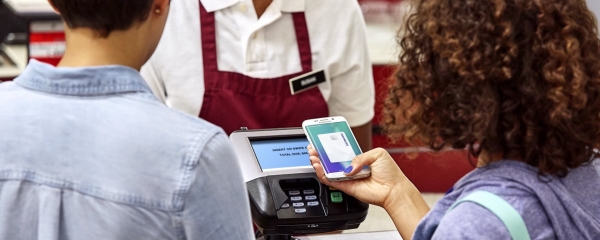
Lately, financial technology, or “Fintech” has innovated payment methods. Many online payment systems that support online money transfers and serve as an electronic alternative to traditional payment methods have appeared. In the U.S.A. and China, simple payment services such as “Paypal” and “Alipay” have been widely used by the public, and in Korea many similar services such as “Samsung pay”, “Kakao pay”. are increasing their market shares.
‘Simple payment service’ refers to any electronic payment service that allows users to make payments on and off-line simply and securely. It is a system that supports payments through simple methods such as pre-certification without complicated payment procedures. When the service was first introduced there were concerns about security. People feared that their financial information would be easily leaked since the payment procedure was so simple. However, nowadays simple payments guarantee security just like any other methods of payment. For instance, Samsung Pay uses a random token instead of the actual card number for each transaction, which means no real information from the original card or account is shared by Samsung Pay. Simply put, a virtual card is created whenever a user makes a payment, so even if any information is hacked, there would not be any problem. In addition, Samsung Pay proceeds its own authentication by PIN (personal identification number), fingerprint, or iris scan. Since it goes through a total of two security steps on a single payment, it is bound to be free from security issues. Although Samsung Pay was used as an example, simple payment systems currently in service usually have a similar or stronger security approach.
It seems that people are starting to prefer quick and secure simple payments than traditional payment methods. On April 17, Financial Supervisory Service reported that as of the end of last year, the total amount of payments for the simple payment service was 80.145 trillion KRW, a sharp increase from 26.88 trillion KRW in 2016. The number of uses of such services also reached 2.38 billion, which is 2.8 times higher than 850 million two years ago. The total number of subscribers was 170 million. The number of simple payment service providers has increased rapidly, and simple payment is taking over the daily lives of people. The results of the survey show that users of the simple payment service use about 710,000 KRW per month through simple payments. The figure rose up about 80,000 KRW from 630,000 KRW a year earlier.
The Korean government plans to boost the development of simple payment services by loosening up various regulations. It plans to expand the limit on simple payment, which is currently set at 2 million KRW. According to the Electronic Financial Transaction Act, the maximum limit on the right to issue e-money is limited to 2 million KRW. This means that the limit of money that can be charged to electronic financiers is 2 million KRW. For this reason, people had to find other payment methods to buy expensive gadgets such as televisions or refrigerators.
In addition, the government is considering to allow companies to offer discounts and other promotions to customers who use simple payments. Under the Specialized Credit Financial Business Act, credit card affiliate members are not allowed to offer greater benefits than credit card customers when making payments through other means than credit cards. This is aimed at preventing credit card affiliate members from inducing cash payments from customers with various discounts or point benefits to avoid exposure of income. However, since the simple payment system has nothing to do with avoiding exposure of income, the government plans to allow providing promotions when paying by a simple payment.
Furthermore, on May 21, the Ministry of Economy and Finance passed an amendment of the Foreign Exchange Transactions Act to allow the usage of simple payments abroad. Currently, people can only pay with cash or credit cards when shopping overseas, but from now on, they will be able to make payments by simple payment methods in affiliated stores. When making payments overseas through credit cards, about one percentage commission is charged. However, such a commission can be evaded when making payments through the prepaid electronic payment method.
Currently, simple payment methods and other Fintech areas are heavily restricted with regulations. However, the government is trying to ease up these regulations to aid the growth of Korean Fintech industries. As improvements are made, it seems that it would be hard to see any paper money in the near future. Simple payments are not the only area of Fintech, and various other convenient finance through technology awaits us.


